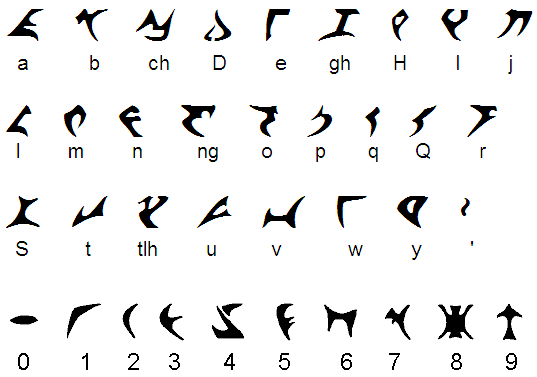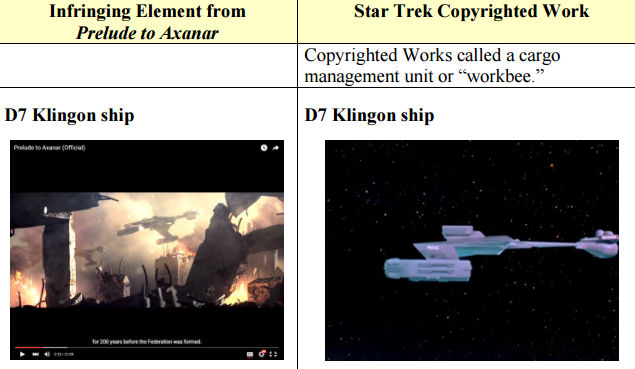Paramount: We Own The Klingon Language
jeudi 14 avril 2016 à 10:49 Earlier this year Paramount Pictures and CBS Studios filed a lawsuit against the makers of the Star Trek inspired fan film, accusing them of copyright infringement.
Earlier this year Paramount Pictures and CBS Studios filed a lawsuit against the makers of the Star Trek inspired fan film, accusing them of copyright infringement.
The dispute centers around the well-received short film Star Trek: Prelude to Axanar and the planned follow-up feature film Anaxar.
Among other things, the Star Trek rightsholders claim ownership over various Star Trek related settings, characters, species, clothing, colors, shapes, words, short phrases and even the Klingon language.
Axanar productions and Alec Peters, the makers of the fan-spinoff, responded to several of the allegations last month arguing that several of the allegedly “infringing elements” are not protected by copyright at all.
They argued that the Klingon language is not copyrightable because it’s not more than an idea or a system. They therefore asked the court to dismiss or strike the copyright claims in question.
However, Paramount and CBS disagree (bIlughbe’*). In their reply the rightsholders call the argument absurd and among other things, they point out that the language system is not very useful if there are no real Klingons to communicate with.
“This argument is absurd, since a language is only useful if it can be used to communicate with people, and there are no Klingons with whom to communicate,” they write (full filing: pdf).
“Defendants’ use of the Klingon language in their works is simply further evidence of their infringement of Plaintiffs’ characters, since speaking this fictitious language is an aspect of their characters.”

In any case, the court should not rule on the matter prematurely, the rightsholders note. The question to what degree various elements are copyright infringing should be decided in future hearings where the issues can be properly addressed.
The same applies to other elements, including spaceships. Axanar productions argues that these general concepts can’t be copyrighted, but Paramount and CBS point out that their specific expression of Klingon warships is.

“Plaintiffs have not merely alleged that the general concepts of a ‘spaceship’ or a ‘spacedock’ have been appropriated – the Complaint’s allegations show that Defendants have misappropriated the expression of these concepts,” the movie studios inform the court.
Citing relevant case law, they argue that Star Trek starships deserve the same protection as the Batmobile.
“Even assuming that Defendants are properly dissecting the elements of the Star Trek Copyrighted Works (and they are not), courts have held that vehicles like the Batmobile are copyrightable as characters, and therefore, specific Star Trek starships are also copyrightable.”
Summing up, Paramount and CBS argue that the infringing status of the various elements should be considered in substantial similarity analysis during the lawsuit. They therefore ask the court to deny Axanar’s motion to dismiss or strike their claims.
—
*bIlughbe’ means you are wrong, in Klingon
Source: TF, for the latest info on copyright, file-sharing, torrent sites and ANONYMOUS VPN services.
 Over the past weeks dozens of companies and organizations have shared their concerns regarding the current state of the DMCA copyright law.
Over the past weeks dozens of companies and organizations have shared their concerns regarding the current state of the DMCA copyright law. 

 “What if you had an unlimited access to the LARGEST ONLINE MOVIE LIBRARY EVER? A community based library, where you could watch any movie online. A library where you could swap films with contributors all over the world and discover an infinite number of stories.
“What if you had an unlimited access to the LARGEST ONLINE MOVIE LIBRARY EVER? A community based library, where you could watch any movie online. A library where you could swap films with contributors all over the world and discover an infinite number of stories. 